- Home
- Michael Crichton
Venom Business Page 3
Venom Business Read online
Page 3
“It was borrowed from the British Embassy,” Miguel said. “Five cases of it. The delivery truck had a flat tire, and while the driver went to telephone…” He shrugged, and poured a glass for Raynaud. “Excellent timing.”
Raynaud raised his glass. “To you, Miguel.”
“And you, Señor Foxwell.”
Raynaud brought the glass to his lips and then set it aside as if a thought had come to him. “I am eager to be going.”
“Ah. And I hoped you would stay.”
“I cannot.” Raynaud set the glass down. “The stuff,” he said. “You have it?”
“Yes. Both. In superb condition. You wish to see?”
“No,” Raynaud said.
“Ah.” Miguel grinned. “Then you trust me after all.”
Raynaud shook his head. “I will wait until I am in the hall to look,” he said. “You know that.”
Miguel laughed, not sure whether to believe it or not. He went to get the stuff and Raynaud waited on the couch. The girl came in, wearing a tight red knit dress that clung to her body.
“Señor Foxwell,” she said.
“Señora.” It was a polite term only; there were no illusions.
“It is nice to see you again,” she said.
“Indeed, it is my pleasure.” He watched her closely as she approached him.
“I cannot speak now,” she whispered, “but be careful as you leave. There is a man and he may be armed.”
“Just one?”
“Yes. One. But an evil man.” She came close and brushed her breasts against his arm. “Be careful. And tomorrow you can find me at the Café Andaluz.”
“All right,” he said.
Miguel returned with the cardboard box under his arm. “Here it is,” he said.
“Good.” Raynaud took the box, feeling its weight, then set it on the chair. “Now the money.”
“You will remember,” Miguel said, “that we agreed upon one thousand dollars.”
“That’s right,” Raynaud said. He opened his billfold and removed three crisp hundred-dollar bills. He set them on the table.
“But, señor—”
“Miguel,” Raynaud said, sliding back his serape to show the gun, “I have received some bad news recently.”
“But, señor, I do not know what you have heard. It cannot be true. We do business together for many years. We are old friends.”
“That’s right,” Raynaud said, standing up. “But I trust my source.”
“Your source?”
“Yes. Your friend there.”
The girl looked at him in shocked surprise, and Miguel whirled on her.
At that moment, Raynaud brought the barrel of the gun down hard across the back of Miguel’s head. It made an ugly crunching sound and the Mexican dropped silently.
The girl stared with wide eyes. “Señor,” she began.
“Sorry,” Raynaud said, “but you know how it is.”
With a second blow, he caught her behind the ear, a careful blow so as to avoid the face. The girl’s face was her livelihood and he did not want to ruin it with a jagged scar from the sight at the end of the barrel. If Miguel wanted to ruin her face later, that was his business.
Besides, the girl had lied to him. There were three men.
He watched as she fell to the carpet, her skirt sliding up to her hips. She was a sensual girl, even unconscious. Quickly, he bent over her and withdrew the tape from his pocket. In a few quick strokes he had taped her hands and legs behind her back, and fastened a strip across her mouth and eyes. He moved to Miguel and did the same. The tape over the eyes did nothing, except disorient them.
He slipped out of the apartment with the box firmly under his arm. The hallway was clear. He shut the door and walked down the hall to the elevator.
He paused at the elevator, then pressed the button. It lighted. He hesitated a moment, then hurried down the service stairs at the end of the corridor. He moved quickly but silently down eight flights of stairs, and halted at the ground floor.
Looking out through the small glass window in the door, he saw a Mexican in peasant costume—bright serape and drab, baggy pants—lounging next to the elevator. Another was just outside the door, and a third, near the street and Raynaud’s car. They were obviously good men; they blended well, inconspicuous, average, retiring. Their bodies seemed perfectly relaxed though he knew they were not.
Good men.
He went back to the first floor, padded down the corridor, and pulled the fire alarm.
Racing back down, he saw the three men looking at each other, startled, confused. The alarm rang loudly, and above him he heard the shouts of frightened tenants. The men heard them too. Raynaud ran out toward the first man and caught him head on, knocking him to the ground. He kicked him hard in the head and stomach; the man vomited and was still.
Raynaud pushed through the doors with the box under his left arm. The second man crouched as he approached. Raynaud drew his gun and the man backed off; Raynaud swung and caught him in the face with the flat of the barrel and the bones of the nose cracked sickeningly. The man fell to the ground.
The third man, waiting by the car, drew a knife. Raynaud glanced back at the building; the alarm still sounded and the tenants were opening their windows, shouting, looking out, and running down the stairs. Raynaud fired his gun in the air and the third man, startled and afraid, turned and ran. He dropped his knife in the street.
Raynaud jumped in his car and roared off as the first police patrol car and fire engine arrived. As he drove away, he hoped that Miguel would have the sense to run for it. If Miguel was quick, he would break the tapes and cross the Guatemalan border before midnight, hiding out in a small village somewhere. If he did that, Angelo would never find him.
And Raynaud hoped to hell that Angelo would never find him.
The butler said, “Ah, Señor Raynaud, you are back.”
“Luis, I must make a call.”
“Of course. There is a private telephone in the drawing room.”
The butler showed him the way to an empty room on the ground floor, decorated with heavy, Spanish-American furniture, but charming in its way. Luis retreated respectfully as Raynaud dialed.
An irritable, sleepy voice answered. “Hello.”
“Angelo? This is Marcus.”
The voice did not seem particularly pleased. “So? Business or pleasure, Señor Marcus?”
“Business. You know Miguel Santoz?”
“The little mestizo who smuggles?”
“That’s right.”
“What about him?”
“Kill him,” Raynaud said.
The voice at the other end sighed, “Kill him, or scare him?”
“Kill him.”
“How much?”
“One hundred dollars.”
“For one hundred dollars,” Angelo said, “I do not go into Guatemala. I am wanted there.”
“Kill him in Mexico.”
“If he is still here.”
“Yes,” Raynaud said. “If he is still here.”
He hung up and went back to the lobby.
Jane Mitchell was in a corner, talking with a short man in a rented, baggy set of tails. It made him look rather like a turtle balancing on the edge of his shell. Jane introduced him and said, “Charles, this is Peter Manchester.”
“How do,” said Peter Manchester, with a small but firm handshake. “Import-export. What’s your game?”
“I’m in the slave trade,” Raynaud said.
“Oh,” Manchester said. “That’s related.”
“Related to what?”
“Import-export,” he said vaguely. He was quite drunk. “How long you been at it?”
“What?”
“The slave trade.”
“Years,” Raynaud said. “You see, my father was an Eskimo.”
“Really? You don’t look Eskimo.”
“I know,” Raynaud said, “but I have an Eskimo name.”
“Personally, I hat
e the cold,” Manchester said. “Hate it. That’s why I came to Mexico.”
“Understandable,” Raynaud said.
“Quite,” Manchester said, and wandered off for another glass of champagne.
Jane looked at him for a moment. “Everything all right? With your business.”
“Fine,” he said. “Just fine.”
“No trouble?”
“Nothing much,” he said.
“You seem in a good mood.”
“I am,” he said. He noticed again her abbreviated dress, and put his arm around her. “Won’t you catch cold, in a dress like that?”
“Don’t you know?” She laughed. “We Eskimos never catch cold.”
They walked off, through the party.
“I’m glad you’re back,” she said.
“I’m glad to be back.”
“Then take your hand off my ass.”
“It was around your waist.”
“Then it slipped.”
“I guess it did.”
“And it’s rubbing right this minute.”
“Feels nice.”
“Stop it.”
Benson came up. Benson was drunk as usual. Benson always got drunk on other people’s liquor.
“Charles. What brings you in from the bush?”
He shrugged. “Business.”
“Snakes again?” Benson shuddered. “Where are you off to now? Sweden? Canada? Rio?”
“Paris, actually. A delivery of three.”
“Paris.” Benson sighed. “And all he cares about is snakes. A tragedy.” He winked at Jane. “Quite a looker you have there, snake man.”
He wandered off.
“Snake man?” Jane said.
“That’s what they call me.”
“Why?”
“Because of my, ah, line of work.”
“Somehow,” Jane said, “I don’t believe it. I don’t believe you’re only interested in snakes. Get your hand off my ass. People are watching.”
“People aren’t. And talk nicely.”
“I’ll scream.” Pause. “That’s better.”
“You’re very cruel,” he said, his hand up around her waist again.
“And you’re quite dexterous,” she said.
“Quick hands. Useful in business.”
“I’m not in business,” she said, and spun lightly away from him.
They had dinner on the terrace, alongside the pool. He told her stories about his travels and avoided too much talk about his past. He disliked talking about his past, or thinking about it. Things were good now: he could sit by his pool beneath the stars and eat a candlelit dinner with a pretty girl. The present was enough.
After dinner they had coffee and cognac. She sat back in her chair and said, “I’m tired. All that champagne.”
He glanced at his watch. It was late; he would have to pack. And for that, he would need to be alone.
“All right,” he said. “Margarita will make up the guest room.”
She smiled slightly. “I don’t have to fight you off?”
“Probably not.”
“I admit,” she said, “I was expecting a battle.”
“I never fight with women.”
“Whom do you fight with?” she asked, looking again at the scar.
“Customs officials,” he said, and rang the bell for the servant.
Margarita took Jane off to the guest wing, and he remained alone for a moment, staring up at the stars and planning the next morning. He considered the details, and small points, the minor facts. They would be crucial, as they always were.
Raynaud believed in details. You never got caught, if you attended to details, and did your homework.
He got up and went past the master bedroom to a small study. There he unlocked the lowest drawer of the desk and removed a strongbox, also locked. He opened this and took out the four passports.
Charles Foxwell, born Louisville, Kentucky, 1930. Middle-aged, white hair, horn-rim spectacles.
Barnaby Raymond, born Chicago, Illinois, 1928. Grinning all-American into the camera, a smooth unlined salesman’s face.
Raymond Charles, born New York, New York, 1931. A drooping, jowly countenance with a dissatisfied scowl. Moustache.
Charles Raynaud, born New York, New York, 1932. His own picture, without changes.
He picked them up and examined them in turn. Then he looked at the other documents, the import and export licenses for Mexico, France, England, Germany…
“Am I disturbing you?”
He looked up. Jane was standing in the doorway, in a floor-length white nightgown. How long had she been there?
“No,” he said calmly, pushing the passports aside, so that they were out of her view. “Not at all.” He moved from behind the desk and walked over to her.
“I wanted to tell you,” she said, “that the room is wonderful, and I’m going to bed.”
She looked young and girlish in the nightgown.
“You want to be tucked in?”
“It’s not necessary,” she said. “Will I see you in the morning?”
“No. I leave early. But I hope you’ll stay and use the house…”
“I may, for a day or two.”
“Good.”
“Will I see you in London?”
He shrugged. “Possibly.”
“Then I’ll say good night,” she said.
She hesitated for a moment. He bent over and kissed her lightly on the forehead.
“Good night,” he said.
He watched as she walked down to the other end of the house, then he turned back into the study and closed the door behind him, and locked it.
At the desk, he selected his own passport. It indicated he had not been to Paris in a year and a half, a respectable amount of time. His own passport would be fine.
But clothes…
He went to the closet and slid the doors open. He would need something tweedy and scholarly. It was summer, of course, but tweeds were still best. Then a heavy, woolen knit tie from England. And sensible cordovan shoes. It would all look right together.
He dropped his passport into the breast pocket, together with the French import license covering everything but unvaccinated primate animals and feathered birds. He put the Mexican export license in another pocket.
Then he walked out to the terrace. He took with him a red marker and a stencil. On the terrace was the perforated box. He set the stencil over it and wrote in French, Spanish, and English:
CAUTION: POISONOUS REPTILES
He lifted the stencil, surveyed the printing, and smiled. He set sawdust on the inside, then picked up the heavy canvas sack containing the snakes he had caught that morning, and transferred the snakes to the box.
They made rustling sounds on the sawdust. It was all mildly sinister.
He looked at the box while he had a final brandy and then, very tired, he went off to bed.
At six in the morning he was showered, and dressed in his tweeds. He had the box under his arm and was slipping out the door when he saw Jane Mitchell.
She smiled at him. “I wanted to see you off.”
“You shouldn’t have bothered.”
She nodded to the box. “Those are the snakes you are delivering?”
“Yes.”
She was still wearing her nightgown; her face was creased prettily from sleep. “And why the get-up?”
“What get-up?”
“The tweedy clothes. You look like a college professor.”
He shrugged noncommittally.
“I think,” she said, “that you are very strange.”
“I am.”
“I hope we meet in London,” she said. “Do try to make it.”
“I will,” he said.
“Do,” she said, and came up and kissed him very hard on the mouth.
“That’s quite an enticement,” he said. “Is it a preview of coming attractions?”
“Maybe,” she said. She looked at him steadily for a moment. “We ha
ve a lot to talk about in London.”
“Oh?”
“Yes,” she said. She kissed him again, lightly this time, her lips just brushing.
“Such as?”
“Such as why you have four passports,” she said, and smiled.
“You were spying,” he said.
“I was curious,” she said.
“And now?”
“And now, I am even more curious,” she said, and gave him a final, very long kiss, which bothered him and amused him and left him feeling a little dizzy, but altogether good.
The airplane cruised at thirty-five thousand feet over the blue water of the Gulf of Mexico. Seated forward in the economy class, looking rather timidly out the window, was Dr. Charles Raynaud, Assistant Professor of Zoology.
He had taken pains to be sure everyone knew his position; he announced it loudly to the ground crews and the girls on the plane. A stewardess came up and said, “Would you care for a drink, Doctor Raynaud?”
“I would adore it,” Raynaud said. “Absolutely adore it. I’m parched: do you have any sherry?”
“I’m sorry. We don’t.”
“Dubonnet?”
“No. I’m sorry.”
“Then ginger ale.”
The stewardess nodded and left. Raynaud removed his wire-rimmed spectacles and wiped them on the end of his tie. He squinted and blinked myopically at the other passengers, then replaced his glasses and settled back in the seat.
Professor. He smiled to himself.
He had learned long ago that certain kinds of status went unchallenged by virtually anyone. Few people recognized this. For example, nobody ever called upon a man to prove he was married, except under the most extraordinary circumstances. Similarly, you could claim any number of academic degrees and professional qualifications—professor, doctor, lawyer—without the slightest trouble, so long as you fulfilled the expectations of the people around you. A doctor had a black bag and a serious demeanor. A lawyer had a briefcase and a rigidly conservative suit. And a professor…
He smiled as the stewardess came up with his drink. She saw the box on the seat alongside him, and read the label.
“What do you have there?”
“Three snakes,” Raynaud said.
“Snakes?” She gave a girlish shudder.
“Very rare and valuable snakes,” Raynaud said.
“I see,” she said. “Are they really—”

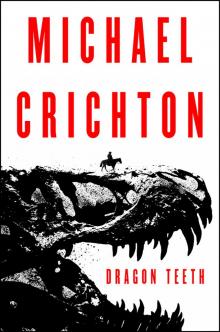 Dragon Teeth
Dragon Teeth Jurassic Park
Jurassic Park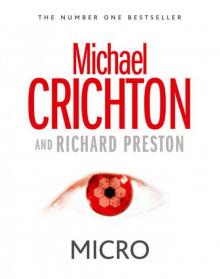 Micro
Micro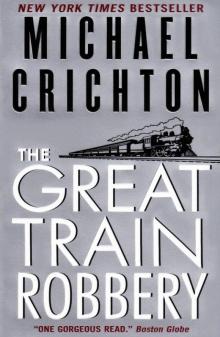 The Great Train Robbery
The Great Train Robbery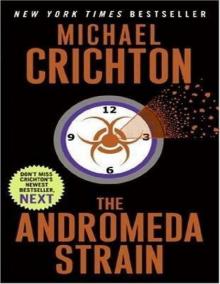 The Andromeda Strain
The Andromeda Strain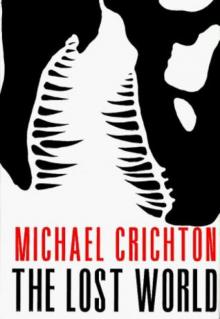 The Lost World
The Lost World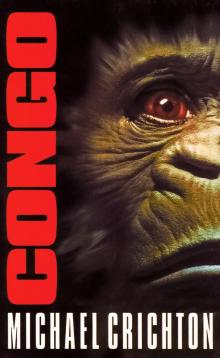 Congo
Congo Travels
Travels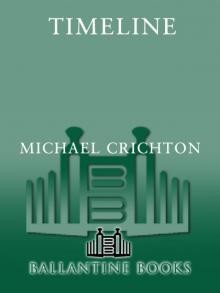 Timeline
Timeline Sphere
Sphere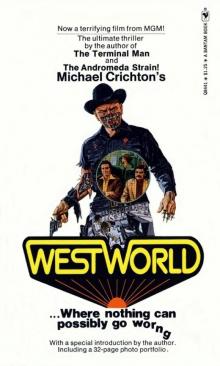 Westworld
Westworld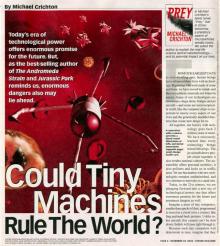 Prey
Prey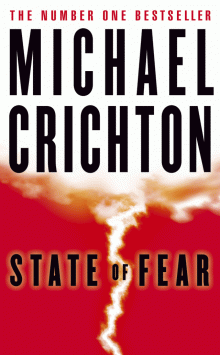 State Of Fear
State Of Fear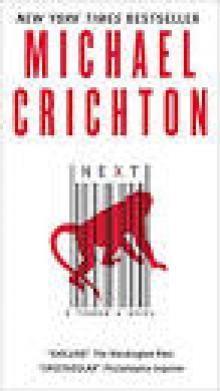 Next
Next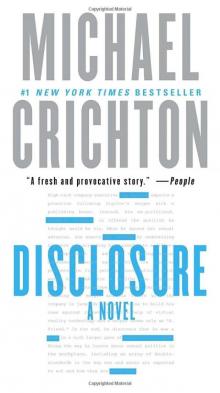 Disclosure
Disclosure Pirate Latitudes
Pirate Latitudes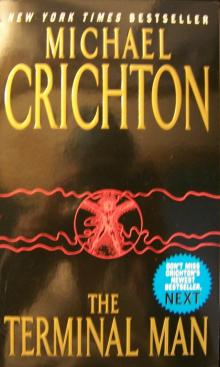 The Terminal Man
The Terminal Man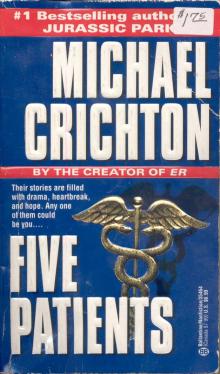 Five Patients
Five Patients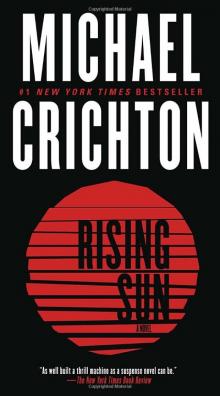 Rising Sun
Rising Sun Binary
Binary The Andromeda Evolution
The Andromeda Evolution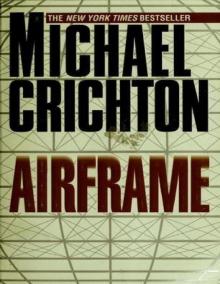 Airframe
Airframe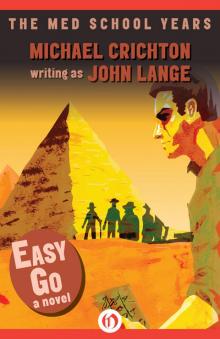 Easy Go
Easy Go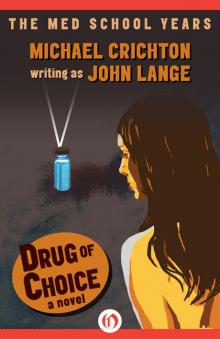 Drug of Choice
Drug of Choice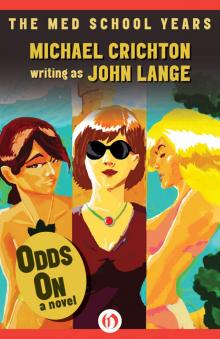 Odds On: A Novel
Odds On: A Novel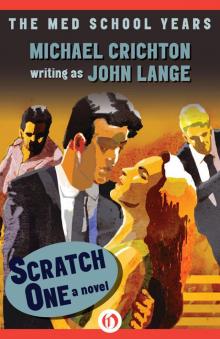 Scratch One
Scratch One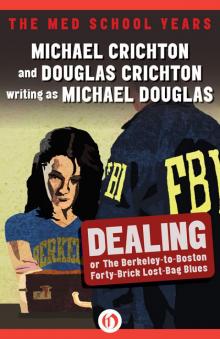 Dealing or The Berkeley-to-Boston Forty-Brick Lost-Bag Blues
Dealing or The Berkeley-to-Boston Forty-Brick Lost-Bag Blues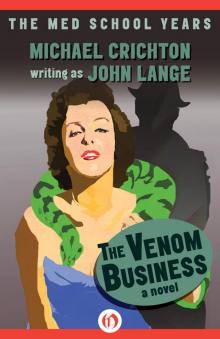 Venom Business
Venom Business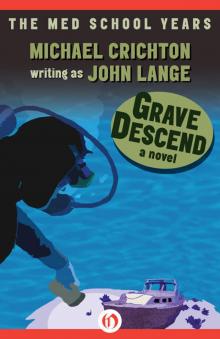 Grave Descend
Grave Descend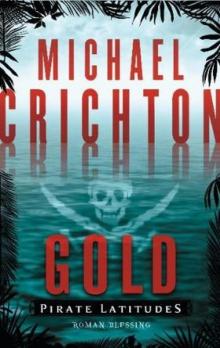 Gold - Pirate Latitudes
Gold - Pirate Latitudes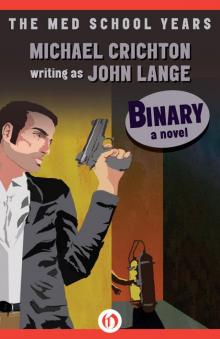 Binary: A Novel
Binary: A Novel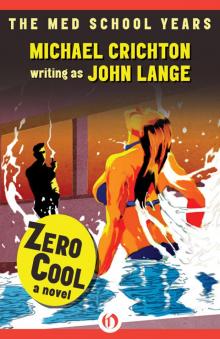 Zero Cool
Zero Cool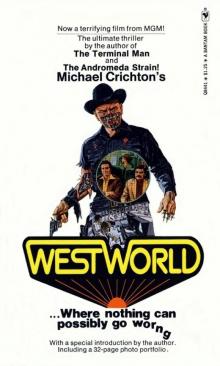 Delos 1 - Westworld
Delos 1 - Westworld